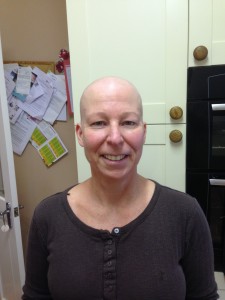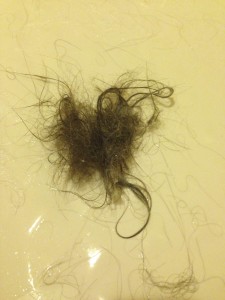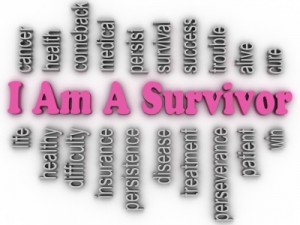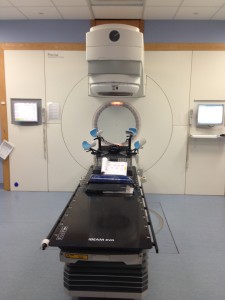
Newly shaven
One of the most potentially devastating and traumatic side effects of chemotherapy is hair loss. Particularly for women this can be what they fear the most. The loss of their crowning glory.
I did lose most of my hair – I found it to be a positive experience and actually came to love my new bald look – even though (as I lost my hair over the winter months) it was mighty chilly!
I was emotionally prepared to lose my hair from the start having shared stories, seen photos and discussed the impact with friends and my support group.
I think I was more concerned at the impact on family and friends of seeing me bald. I did do a double take each time I looked in the mirror and saw this bald woman looking back at me! It took a while to get used to.
But it does grow back!
Within a few months you’ll have a short, close cropped look and after a couple of years (all being well), you’ll hair will be back to normal.
And now – a year after my chemo finished, I have to say, I think my hair is better than it was before. It certainly came back slightly darker – it was the grey hair that hung on in there while the rest was falling out in handfuls. I didn’t get the chemo-curl which I’d been hoping for. My hair has always been fine and straight, so a curl of any sort would have been another novelty.
I actually love my new shorter haircut, so much easier to look after and if it hadn’t been for the circumstances, would never have gone this short before, never mind being bald.
My advice would be:
- prepare yourself for the most likely outcome – you will lose your hair.
- accept it as a short-term loss.
- you may be one of the lucky ones who doesn’t lose their hair.
You have options:
– scarves, hats and caps to keep your head warm and to add a bit of style. You’ll be surprised that some people hardly notice your new headgear (or perhaps they were too polite or too afraid to ask).
– wigs, suit some, not others and can give you your more ‘normal’ look. Also an ideal opportunity to try out a new style or colour.
– cold cap – works for some not others. As most of the people at my support group who’d used a cold cap had lost their hair anyway I didn’t even consider this option and besides, I didn’t want to add 2-3 hours to my chemotherapy each time, to say nothing of the incredible painful process of freezing your head each time.
I did get my hair cut short before it all fell out as I wanted it to be easier to manage and have less hair to full out.
It started to fall out a week or so after my first chemo and had pretty much all come out after the second session.
It was then that I got my head shaved as my thinned, wispy scalp was not a pretty sight to behold and having my rapidly thinning hair left on pillows, cushions, in hats, on clothes and clogging up the plughole was annoying.
The unusual experience of being bald was amazingly freeing – saved money on shampoo, conditioner and hair products for several months!
Admittedly my hair care has always been of the wash it and leave it approach. Certainly saved time in the shower and just needed a light oiling to keep my scalp healthy.










Recent Comments